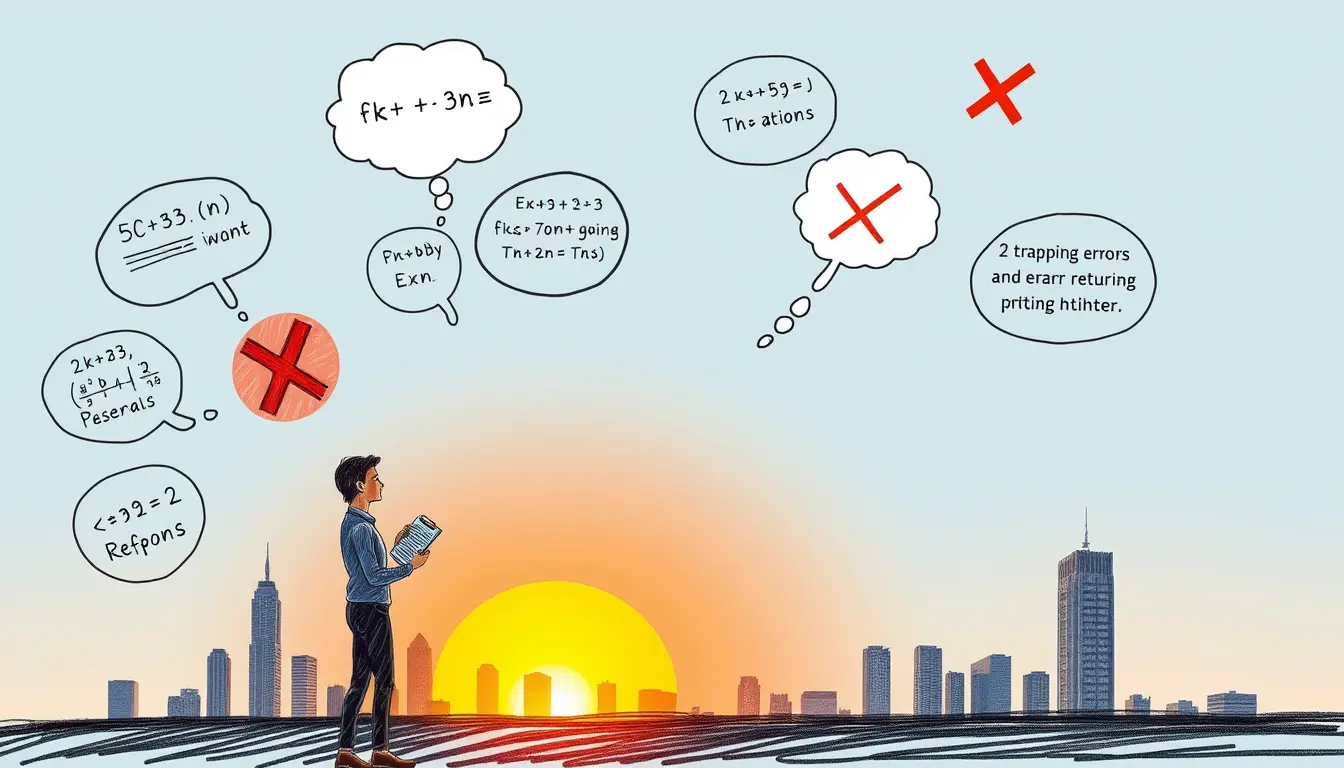What Are SQL CASE Expressions?
SQL CASE expressions are powerful tools that allow you to add conditional logic to your queries. Think of them as the Swiss Army knife of SQL – versatile, handy, and able to tackle a variety of tasks. But what exactly are they?
CASE expressions are like mini-decision trees within your SQL query. They evaluate a list of conditions and return a specific value for each condition. It’s like having an if-else statement right in your SQL code!
Do you have complex business rules that require conditional logic in your SQL queries? CASE expressions might be just what you need.
The Anatomy of a CASE Expression
Before we dive deeper, let’s look at the basic structure of a CASE expression:
CASE
WHEN condition1 THEN result1
WHEN condition2 THEN result2
...
ELSE result_else
ENDHere’s what each part does:
- WHEN: This is where you specify your condition.
- THEN: This is the result if the condition is true.
- ELSE: This is the default result if none of the conditions are met.
It’s like setting up a series of “if this, then that” statements. Simple, right?
Types of CASE Expressions
There are two main flavors of CASE expressions in SQL:
- Simple CASE Expression
- Searched CASE Expression
Let’s explore each type with some tasty examples!
Simple CASE Expression
A simple CASE expression compares an expression to a set of simple expressions to determine the result. It’s like a direct comparison.
SELECT
order_id,
CASE order_status
WHEN 'Shipped' THEN 'On the way'
WHEN 'Delivered' THEN 'Completed'
ELSE 'Processing'
END AS order_status_description
FROM orders;In this example, we’re translating order statuses into more customer-friendly descriptions.
Searched CASE Expression
A searched CASE expression evaluates a set of Boolean expressions to determine the result. It’s more flexible than the simple CASE expression.
SELECT
product_name,
price,
CASE
WHEN price < 10 THEN 'Budget'
WHEN price BETWEEN 10 AND 50 THEN 'Mid-range'
ELSE 'Premium'
END AS price_category
FROM products;Here, we’re categorizing products based on their price range.
When to Use CASE Expressions
CASE expressions are incredibly versatile. Here are some scenarios where they shine:
- Data Transformation: Convert coded values into more readable formats.
- Conditional Aggregation: Perform different calculations based on conditions.
- Handling Null Values: Provide default values when data is missing.
- Complex Sorting: Create custom sort orders in your queries.
Let’s look at a practical example that combines these use cases:
SELECT
department,
AVG(CASE
WHEN performance_score IS NULL THEN 50
ELSE performance_score
END) AS avg_performance,
COUNT(CASE
WHEN salary > 50000 THEN 1
ELSE NULL
END) AS high_earners
FROM employees
GROUP BY department
ORDER BY
CASE
WHEN department = 'Sales' THEN 1
WHEN department = 'Marketing' THEN 2
ELSE 3
END;This query does several things:
- Handles NULL performance scores by assigning a default value of 50.
- Counts high earners (salary > 50000) in each department.
- Orders the results with Sales and Marketing departments first.
You can use multiple WHEN clauses to handle different conditions, and you can also use the ELSE clause to provide a default value.
CASE Expressions vs. IF Statements
You might be wondering, “Why use CASE when I can use IF?” Good question! Let’s compare:
| Feature | CASE Expression | IF Statement |
|---|---|---|
| Readability | More readable for multiple conditions | Better for simple conditions |
| Performance | Generally faster for multiple conditions | Can be slower for complex logic |
| Flexibility | Can be used in SELECT, WHERE, ORDER BY, and more | Limited to WHERE clause in most databases |
| Compatibility | Supported by all major databases | Not universally supported |
As you can see, CASE expressions often come out on top, especially for complex scenarios.
Advanced Techniques with CASE
Ready to level up your CASE expression game? Here are some advanced techniques:
Nested CASE Expressions
You can nest CASE expressions within each other for more complex logic:
SELECT
order_id,
CASE
WHEN order_status = 'Shipped' THEN
CASE
WHEN shipping_method = 'Express' THEN '1-2 days'
ELSE '3-5 days'
END
ELSE 'Not shipped yet'
END AS estimated_delivery
FROM orders;CASE in Joins
You can use CASE expressions in JOIN conditions for dynamic joining:
SELECT
c.customer_name,
o.order_id
FROM customers c
LEFT JOIN orders o ON
c.customer_id = o.customer_id
AND CASE
WHEN c.customer_type = 'VIP' THEN o.order_date >= DATE_SUB(CURDATE(), INTERVAL 1 YEAR)
ELSE o.order_date >= DATE_SUB(CURDATE(), INTERVAL 6 MONTH)
END;This query joins customers with their orders, but for VIP customers, it considers orders from the last year, while for regular customers, it only looks at orders from the last 6 months.
Common Pitfalls and How to Avoid Them
Even SQL pros can stumble with CASE expressions. Here are some common mistakes and how to sidestep them:
- Forgetting the ELSE clause: Always include an ELSE clause to handle unexpected scenarios.
- Incorrect order of conditions: Put more specific conditions before general ones.
- Overcomplicating: Keep your CASE expressions as simple as possible. If it’s getting too complex, consider breaking it into multiple steps.
FAQ
How do CASE expressions affect query performance?
CASE expressions generally have minimal impact on query performance. However, very complex CASE expressions or those used in large-scale queries might affect performance. Always test your queries with realistic data volumes.
Can I use CASE expressions in WHERE clauses?
Absolutely! CASE expressions in WHERE clauses can create dynamic filtering conditions. For example:
SELECT *
FROM orders
WHERE
CASE
WHEN DAYOFWEEK(order_date) IN (1, 7) THEN total_amount > 100
ELSE total_amount > 50
END;This query applies different minimum order amounts for weekends vs. weekdays.
Are there any limitations to using CASE expressions?
While CASE expressions are powerful, they can’t do everything. They can’t be used to dynamically change table or column names, for instance. Also, some databases might have limits on the number of WHEN clauses you can use in a single CASE expression.
Conclusion
CASE expressions are a powerful feature in SQL that can simplify complex logic, improve query readability, and boost your data analysis capabilities. By mastering CASE expressions, you’ll be able to write more efficient and flexible queries, handling a wide range of scenarios with ease.
Remember, the key to becoming proficient with CASE expressions is practice. Start incorporating them into your queries, experiment with different use cases, and soon you’ll wonder how you ever lived without them!
Happy querying!














Leave a Reply